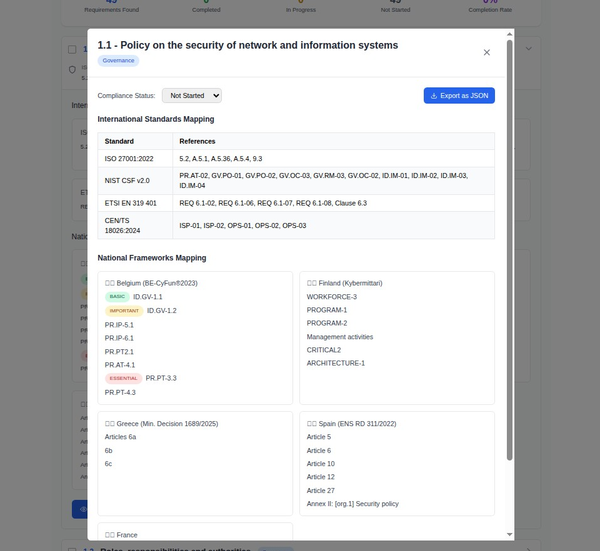In-Depth Analysis of the Connecticut Data Privacy Act (CTDPA)

The Connecticut Data Privacy Act (CTDPA), effective July 1, 2023, is a comprehensive privacy law designed to protect the personal data of Connecticut residents. As the fifth state to enact such legislation, Connecticut aims to enhance consumer rights and impose clear obligations on businesses handling personal data. This article explores the key components of the CTDPA, its implications for businesses, and the rights it grants to Connecticut residents.
Scope and Applicability
The CTDPA applies to entities conducting business in Connecticut or producing products or services targeted to Connecticut residents. To fall under the CTDPA’s jurisdiction, a business must meet one of the following criteria:
- Volume of Data Processing: Controls or processes the personal data of at least 100,000 consumers annually, excluding data collected solely for payment transactions.
- Revenue from Data Sales: Controls or processes the personal data of at least 25,000 consumers and derives more than 25% of its gross revenue from the sale of personal data.
This ensures that the law targets businesses with significant data processing activities, while smaller entities with limited data interactions are generally exempt.
Consumer Rights
The CTDPA grants Connecticut residents several rights concerning their personal data, including:
- Right to Access: Consumers can confirm whether a business is processing their personal data and access that data.
- Right to Correction: Consumers can request corrections to inaccuracies in their personal data.
- Right to Deletion: Consumers can request the deletion of their personal data, including data collected through third parties.
- Right to Data Portability: Consumers can obtain a copy of their personal data in a portable format.
- Right to Opt-Out: Consumers can opt out of the processing of personal data for targeted advertising, the sale of personal data, and profiling in furtherance of decisions that produce legal or similarly significant effects concerning the consumer.
These rights empower consumers to exercise greater control over their personal information and require businesses to respond to consumer requests within 45 days, with a possible extension of an additional 45 days if necessary.
Business Obligations
Under the CTDPA, businesses must adhere to several obligations:
- Data Minimization: Limit data collection to what is adequate, relevant, and reasonably necessary for the disclosed purposes.
- Consent for Sensitive Data: Obtain consumer consent before processing sensitive data, which includes racial or ethnic origin, religious beliefs, health, sexual orientation, citizenship or immigration status, genetic or biometric data, and precise geolocation data.
- Privacy Notices: Provide clear and comprehensive privacy notices detailing data processing activities and purposes.
- Data Protection Assessments: Conduct assessments for processing activities that present a heightened risk of harm to consumers, such as targeted advertising and profiling.
- Security Measures: Implement reasonable security practices to protect consumer data.
- Non-Discrimination: Ensure consumers are not discriminated against for exercising their rights.
Enforcement and Penalties
The Connecticut Attorney General is responsible for enforcing the CTDPA. The law allows for civil penalties of up to $5,000 per violation under the Connecticut Unfair Trade Practices Act. Additionally, businesses may face injunctive relief and other remedies for non-compliance.
Conclusion
The Connecticut Data Privacy Act sets a high standard for data privacy protection, emphasizing consumer rights and business accountability. As businesses continue to adapt to the CTDPA's requirements, they must conduct thorough data audits, update privacy policies, and implement robust data protection measures. The CTDPA not only aligns with other state privacy laws but also introduces unique provisions that enhance consumer control over personal data. As the regulatory landscape continues to evolve, the CTDPA serves as a critical model for balancing innovation with privacy protection.
Citations:
[1] https://www.osano.com/articles/connecticut-data-privacy-act-ctdpa
[2] https://portal.ct.gov/ag/sections/privacy/the-connecticut-data-privacy-act
[3] https://www.akingump.com/en/insights/alerts/connecticut-data-privacy-act-what-businesses-need-to-know
[4] https://www.cookieyes.com/blog/ctdpa-connecticut-data-privacy-law/
[5] https://www.dataguidance.com/notes/connecticut-data-protection-overview
[6] https://pplx-res.cloudinary.com/image/upload/v1724692281/user_uploads/wsgigsbut/us-privacy-laws-by-state-infographic.jpg
[7] https://pplx-res.cloudinary.com/image/upload/v1724692282/user_uploads/honcdedsp/CTEC_Privacy2024_HeatMap_v2-scaled.jpg





